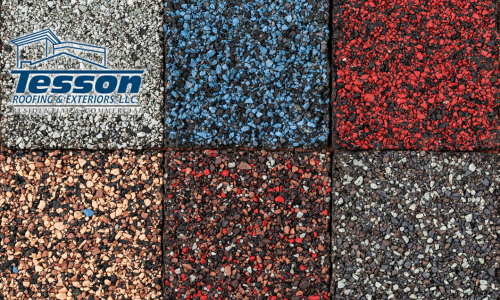Asphalt shingles are the most popular roofing material in the United States, primarily due to their affordability, ease of installation, and versatile design options. Understanding their pros, cons, and durability is essential when considering this common roofing choice for your home.
Pros of Asphalt Shingles:
1. Affordability:
Asphalt shingles are budget-friendly, making them accessible to homeowners with various financial constraints. They provide a cost-effective roofing solution without compromising basic functionality.
2. Variety of Styles and Colors:
Asphalt shingles come in a wide array of styles, textures, and colors, allowing homeowners to customize their roofs to match their preferences and architectural aesthetics. Whether you prefer a traditional, rustic, or modern look, there’s an asphalt shingle design for you.
3. Ease of Installation:
Roofers appreciate asphalt shingles for their ease of installation. They are relatively lightweight, making the installation process quicker and more straightforward compared to heavier materials like metal or slate. This ease of installation often translates to lower labor costs.
4. Decent Durability:
While not as long-lasting as some premium materials like metal or slate, asphalt shingles are durable and provide satisfactory protection for a typical residential home. They can withstand moderate weather conditions and offer reliable defense against rain, wind, and sunlight.
5. Repair and Replacement:
Individual damaged shingles can be easily replaced without disturbing the rest of the roof. This repair flexibility makes maintenance more straightforward and cost-effective.
Cons of Asphalt Shingles:
1. Limited Lifespan:
Asphalt shingles have a moderate lifespan of 20-30 years, which is shorter compared to materials like metal or slate. While they offer decent durability, they may need replacement sooner, especially in regions with extreme weather conditions.
2. Vulnerability to Severe Weather:
Asphalt shingles are more susceptible to damage in severe weather conditions such as hurricanes, hailstorms, or heavy snowfall. Intense heat and drastic temperature fluctuations can also cause them to deteriorate faster.
3. Environmental Impact:
Asphalt shingles are not environmentally friendly. They are made from petroleum-based products and contribute to landfill waste. However, some manufacturers produce recyclable asphalt shingles, helping mitigate their environmental impact.
4. Fading and Discoloration:
Over time, asphalt shingles can fade and lose their original color due to exposure to sunlight. While this doesn’t affect their functionality, it can impact the curb appeal of your home.
Durability of Asphalt Shingles:
The durability of asphalt shingles depends significantly on factors such as the quality of the shingles, installation, and local weather conditions. High-quality asphalt shingles, properly installed, can withstand typical weather conditions for several decades. Regular maintenance and prompt repairs enhance their lifespan.
In summary, asphalt shingles offer a cost-effective roofing solution with a variety of design options. While they have a moderate lifespan and are vulnerable to severe weather, their durability, ease of installation, and repair capabilities make them a popular choice for many homeowners. When choosing asphalt shingles, investing in high-quality materials and professional installation can significantly impact their overall longevity and performance.
